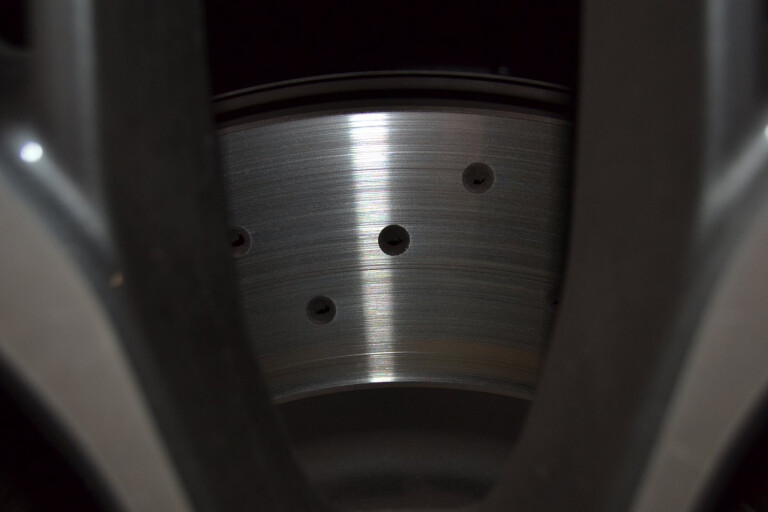
If, like many Australians, you’ve been spending more time at home and less time on the road in recent years, your car may be spending a lot more time sitting idle.
If that’s the case, it might make an unpleasant sound when you eventually put it to work again, particularly if you're parking your car outside.
While there are many odd sounds your car can potentially make after a prolonged period without use, the noise we are referring to is a scraping metal sound coming from behind the wheels immediately after pulling away.
You might notice the noise only happens when you’re moving, gets worse with speed, potentially causes the steering wheel to wobble or vibrate slightly, and gets better after a few hundred metres or more.
If this is something you’ve experienced, then you most likely have corroded brake discs... but don’t worry, it sounds a lot worse than it actually is.
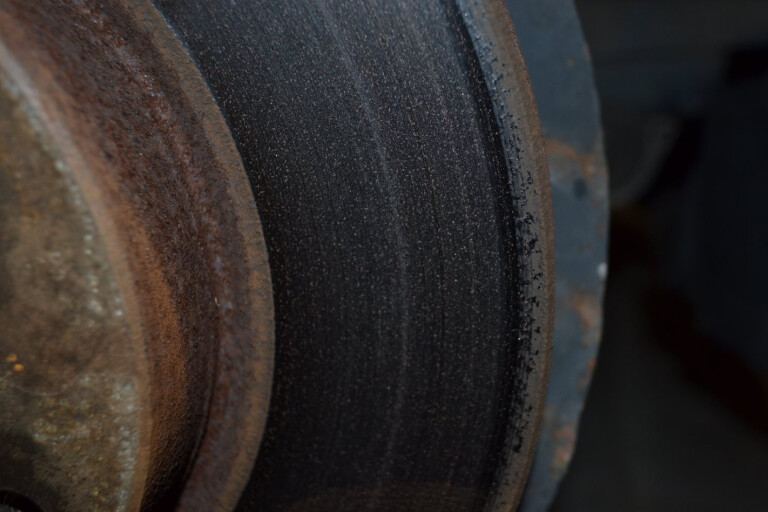
What causes brake disc corrosion?
Each time you press the brake pedal in your car, a set of pads are pressed against the smooth metal surface of the brake discs (also called rotors).
This generates friction and turns the kinetic energy of the vehicle’s movement into heat energy, reducing the speed of the car.
Virtually every passenger car on the road today is fitted with brake discs made from a ferrous metal such as iron or steel.
This means they can rust, but the frequent heating and cleaning effect of the pads contacting the surface prevents the build-up of oxidised metal - otherwise known as rust.
When you leave your car idle for a prolonged period - particularly in damp conditions - the corrosion has a chance to build up, and it’s this encrusted rust that makes the unpleasant sound as soon as the wheels start to turn for the first time.
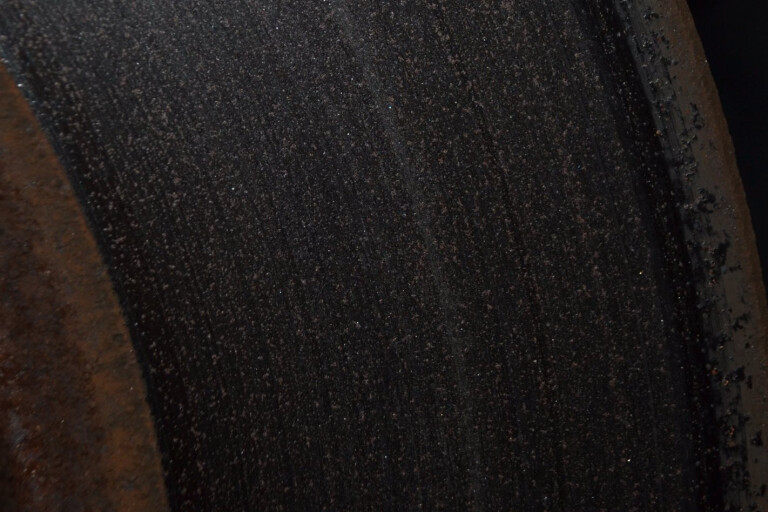
How to fix brake rotor corrosion
The good news is that removing light brake corrosion is as simple as pressing the brake pedal a few times.
If you suspect your car has rusty brake discs after an extended time of immobility, drive at a normal speed on a clear road and lightly apply the brakes a few times, leaving a few seconds in between each application.
As the pads contact the rotating disc, they will cut through the relatively soft layer of corrosion, exposing and cleaning the metal underneath. Think of your brake pads as dish scourers on a dirty plate, and you get the idea.
You don't need to hit the brakes hard - you're only sweeping the top of the rotor surface, and you don't want to startle other road users with heavy brake applications.
As a final diagnosis, you may notice a fine reddish powder on your wheels (not normal black brake dust), which is the removed coating of rust. This will wash off easily.
How to prevent brake disc corrosion
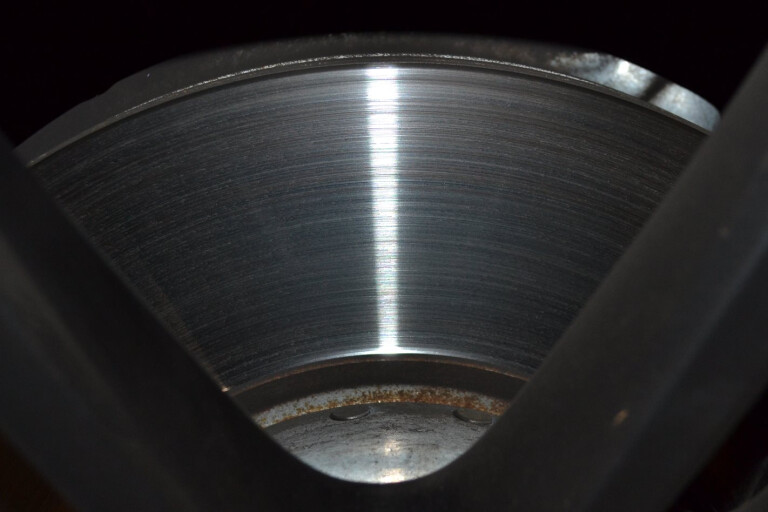
While it’s relatively simple to prevent any other ferrous metal car component from rusting, brake discs present their own unique challenges.
Spraying or coating with a rustproof or water dispersing material (as you might find with painted panels and lubricated engine parts) is unsuitable - and indeed dangerous! - as this would prevent the friction that’s necessary to slow the vehicle.
And using a non-ferrous material for the rotors is not as straightforward as it may seem, as there are few substances that offer the same durability, hardness and heat resistance of steel and iron without breaking the bank.
Thankfully, there are a number of ways to stop the build-up of oxide on your car’s brake discs and easily the simplest is regular use.
Go for a drive
Even if it’s a run to the end of the street with a couple of brake applications in the process, the heat generated will be sufficient to dry the friction surfaces and prevent rusting.
| IMPORTANT: If you still notice noise coming from your brakes after a few kilometres of brake applications, book it in for a service to have it investigated. If the discs have extensively corroded, brake application will not cure the problem and they will need to be replaced. Read: How often should I service my car? |
Alternatively, the sound might be warning of a completely different problem such as a cracked disc or unrelated to the brakes including wheel bearing problems. If in doubt, get a trusted professional to inspect your car.
Deluxe accommodation
Less practical for most drivers but arguably more effective, is garaging or storing your car in a controlled atmosphere. Some modern storage facilities use sealed parking areas for vehicles and constantly dehumidify the circulated air.
This prevents moisture from starting the corrosion process on the brakes. A sophisticated but complex solution which is normally only applicable for very valuable and rare vehicles.
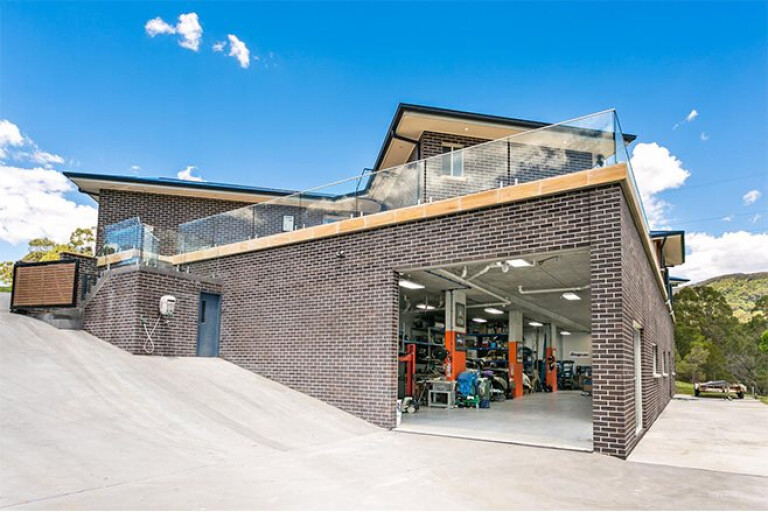
Exotic materials
Finally, producing brake discs from materials that don’t rust is another elegant solution - but it's one that comes with a price. Coated discs, corrosion-resistant steel alloys and carbon-ceramic brakes all offer solutions that will resist rusting as well as significant performance advantages.
In all cases, these exotic materials are many times the price of steel and cast iron.
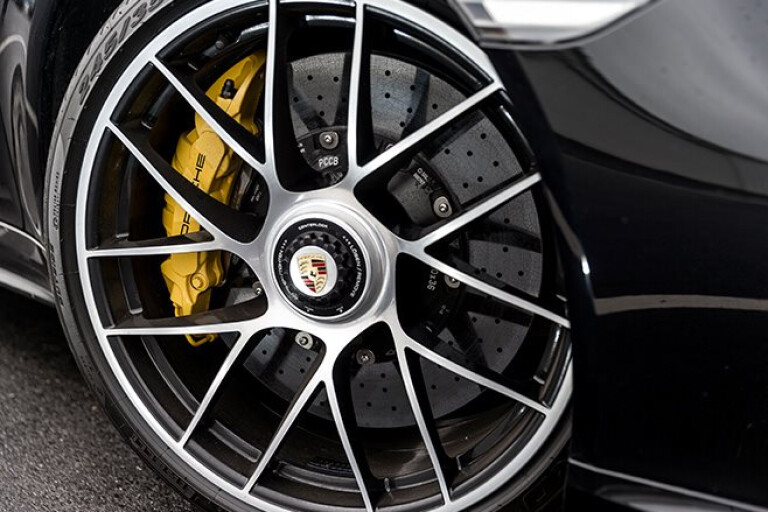
Additives
There are a number of products available that can be applied to clean brake discs if you know your car won’t be driven for a while.
The special products are sprayed onto the exposed metal and prevent the moisture and air attacking the surface with a protective film.
However, when the car is driven again, the brake pads will remove the coating as they would any rust, which means the product needs to be applied each time the car is left.
Handy advice
If you know that your car won’t be used for a few weeks in advance and you have access to secure parking, it’s a good idea to avoid using the parking brake.
Like the main vehicle brakes, the handbrake components can become, quite literally, rusted on and you won't be able to move your car.
To prevent this happening to vehicles without more modern electric park brakes (which engage automatically when the vehicle is switched off), don’t apply the park brake, leave the vehicle in gear and chock a wheel to prevent it from moving. If you're parked on an incline, turn the steering wheel towards the gutter for additional peace of mind.
What about...
It's not ideal to continue driving if your brakes are grinding, especially if you can't be certain of the cause. If it's not too loud, you could consider getting to the nearest workshop – but a call to your roadside assist might be the safest path.
Brake disc corrosion is caused mostly by rust from leaving your car idle for too long, but regular driving means the frequent heating and cleaning effect of the braking process will keep them from rusting.
If you suspect your car has rusty brake discs after an extended time sitting idle, drive at a normal speed on a clear road and lightly apply the brakes a few times, leaving a few seconds in between each application – this will allow your car's brake pads to cut through the soft layer of corrosion, cleaning the metal discs beneath.



COMMENTS